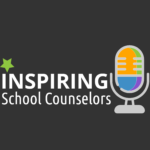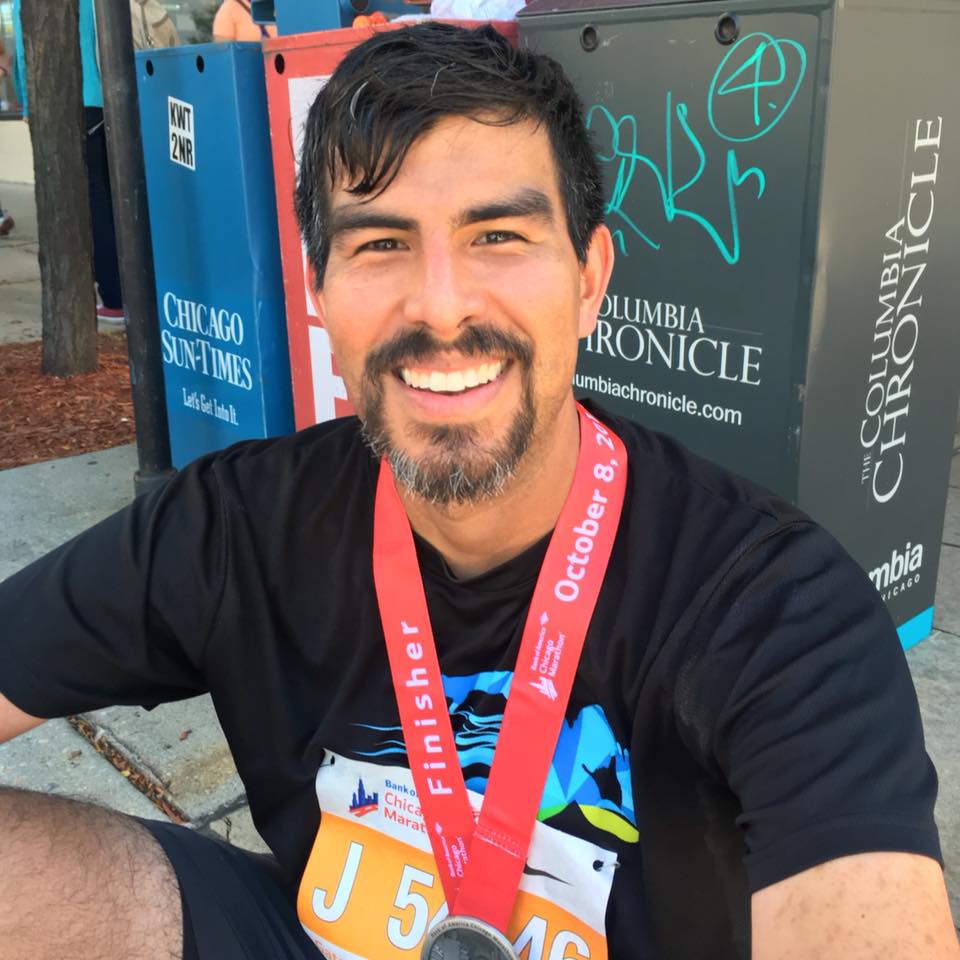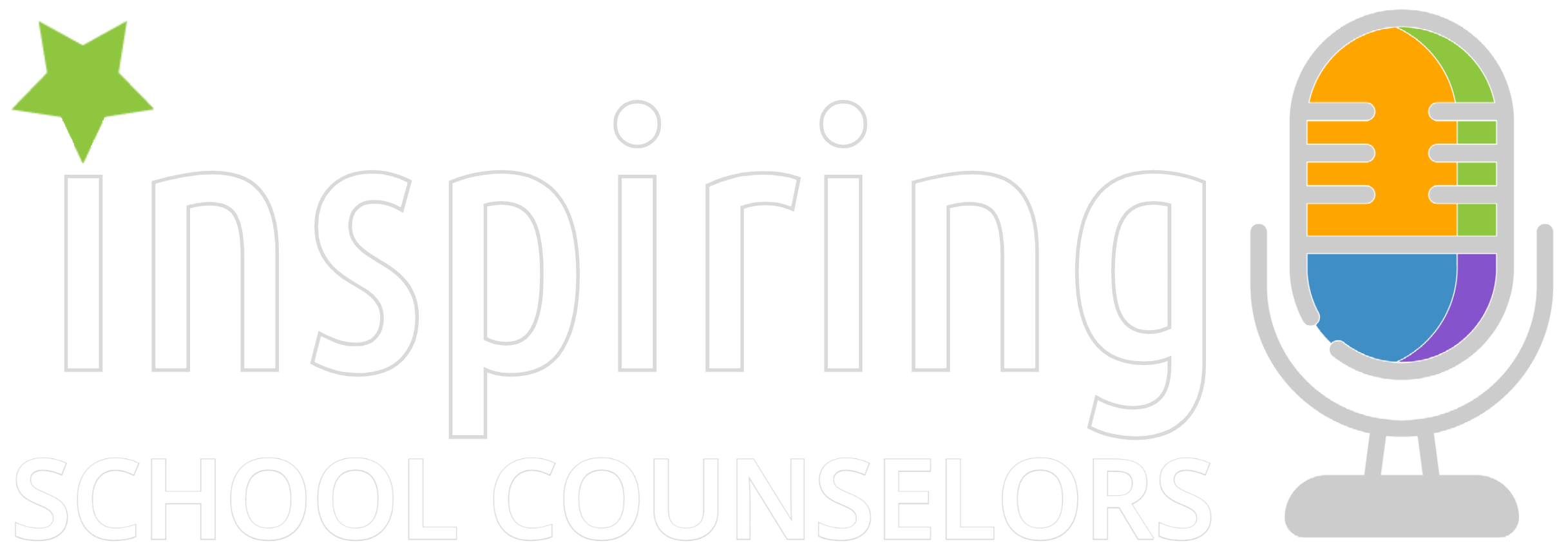Affinity is defined as a “similarity of characteristics suggesting a relationship.” Using this definition, the American School Counselor Association has formed “affinity groups” for new school counselors, rural school counselors, and many more, including a school counselors of color affinity group. Aimee Portteus shares a conversation this week with high school counselor Lukas Mendoza to learn more about his involvement in ASCA’s School Counselors of Color Affinity Group.

About Lukas Mendoza
Lukas Mendoza is a College and Career Counselor at Saint Joseph High School. Originally from Texas, Lukas has served various schools in San Antonio, Los Angeles, and now South Bend, Indiana. When he isn’t helping students navigate high school, he enjoys reading, watching movies, and running marathons.
Lukas also has a podcast for the Saint Joseph High School Counseling office!

Resources
Lukas recommends these resources:
- Article: From the Achievement Gap to the Education Debt: Understanding Achievement in U.S. Schools, Gloria Ladsen-Billings
- Book: Educational Policy Goes to School, edited by Gilberto Q. Conchas, Michael A. Gottfried, Briana M. Hinga, & Leticia Oseguera (find it on Amazon)
- Online: American School Counselor Association (ASCA) Affinity Groups
We Want to Hear from You!

What’s your best advice for other school counselors? Who has influenced you? What books do you recommend? We want to know! Please take a few minutes to complete the Inspiring School Counselors form.
Subscribe
Inspiring School Counselors is available on these podcast apps and others. If you can’t find the podcast on your favorite app, let us know and we’ll make sure we get there. If you prefer to listen in your browser, visit https://inspiresuccess.org/podcast every week for a new episode. For new episode notifications and more, follow Inspire Success on Facebook, Instagram, or Twitter.
Transcript
A rough transcript follows.
Matt Fleck:
Hi, everyone. Welcome back to the Inspiring School Counsel’s podcast. I’m Matt Fleck. All of us have felt isolated at one time or another that isolation can be even more intense for school counselors from historically underrepresented groups. So our own Aimee Portteus reached out to high school counselor Lukas Mendoza, who’s a member of the American School Counselor Association’s affinity groups, one of several affinity groups. That is to learn more about the groups and to find out what resources could be helpful to all of us.
Lukas Mendoza:
So I originally am from Texas, um, and I’ve been a school counselor now, this is year 13, I believe, as a school counselor. Um, I’m currently in South Bend, Indiana at a Catholic high school here. Um, but I have experience in California as well, in the Los Angeles area. So that’s what I do.
Aimee Portteus:
That’s interesting. So do you find large differences in your profession between Los Angeles and South Bend, Indiana?
Lukas:
Definitely. Yeah, definitely. I mean, LA is LA – it’s a big city, lots of people. And then moving, moving back to South Bend, Um, it’s definitely much slower. Uh, less people, a lot slower pace of life. Um, but it’s been good. There are the students, young people are young people, kind of wherever they are. So there’s not much change there.
Aimee:
They still need a good mentor in their lives, right?
Lukas:
Mm-hmm. <affirmative>. Yeah, definitely
Aimee:
Okay. Well, I understand that you’re part of ASCA’s School Counselors of Color Affinity Group. Can you tell us a little bit more about that?
Lukas:
Yeah, so, um, ASCA I guess maybe a year, year and a half ago was wanting to put together some affinity groups. There are several different ones, um, that ASCA has put out. And I was attracted to the school counselors of Color group, um, just because I identify as a male Latino, male Hispanic. And there aren’t many of us in the counseling profession or in education in general. And so I just thought it could be something to get involved in and just wanting to learn more about asca, um, and also make connections with counselors across the country. So we were able to have an in-person event, um, the ASCA conference in Austin. And so it was really good to meet my fellow leaders of the group in person. Um, but also able to connect and see cuz we, you know, we try to do a monthly meeting and so we were able to see everybody that has been attending our monthly meetings actually in person at the summer conference. So that was really fun.
Aimee:
Oh, I bet it was. I bet it was. So tell me what’s, what a monthly meeting is like, what’s the, what is the goal behind having those monthly meetings?
Lukas:
Mm-hmm. <affirmative>. So we are, so now about a year old, I think we’ve kind of found our footing. The initial meetings we were just trying to figure out, okay, what is the purpose of this group? People really are looking for connections and mentorships. So veteran counselors with new counselors, or veteran counselors with veteran counselors is kind of sharing, sharing ideas, sharing resources, um, and also looking for roles, um, or looking for ways to advocate for the profession. Um, and then we’re also looking just to create that community of school counselors of color to support each other, but also in supporting the students that we work with.
Aimee:
So Lukas, I was really interested, um, in, in preparing for this conversation. So I actually looked at ASCA’s website and it says that this is what they state about the Affinity group that you’re part of. The School Counselors of Color Affinity Group is dedicated to providing a safe space for school counselors of color to be authentic and genuine and to create the opportunities to connect and network, share ideas and experiences and discuss relevant issues. I feel like you, that’s what you’ve been speaking to, but can you elaborate on that a little bit? Why is it important that we create a safe space for school counselors of color?
Lukas:
Yeah, I think it’s, it’s a place where sometimes the counselor, um, if they’re a person of color, may be the only person of color at a school. And so I think that’s important, uh, to create a space where they can share experiences, um, share frustrations, um, in a place that, you know, other people can, can be able to relate to that. Um, and you know, I know there’s a lot of work around being better with, um, DEI diversity, equity, and inclusion work, but not every school is quite there yet. And so whether or not it’s, it’s an issue or whether or not people believe it’s an issue, it is an issue. And so, uh, I think having that space is something that is, I think could be powerful.
Aimee:
That’s nice. That’s great. What a, what a great way to advocate not just for our profession, but for our students as well. Mm-hmm. <affirmative> and the diversity and the diversity that we all, um, experience. Um, so you are an active school counselor, you said you’re at, I’m gonna assume you’re at St. Joe High School, is that right?
Lukas:
Yep, yep.
Aimee:
So can you share a story or two about how your involvement with this particular affinity group has impacted a student or a programming or how you do your job?
Lukas:
Yeah, so I think I have always been one to advocate for students, but kind of within the system. Um, and I think in my work in this, I feel more comfortable pushing on that system, just bringing up issues related to access specifically about, you know, access to classes, access to, um, you know, advanced classes. And I am, I’m definitely more comfortable just like, well, you know, is this, is this in the best interest of a student? Like if, if a student really is advocating for themselves and saying, I want to try this class, let’s give ’em the opportunity to do that. You know, I know we have a system in place for students that need to write, demonstrate, you know, prior academic achievement in a certain class or, you know, anything like that. But at the same time I’m just like, you know, this kid I think really has the ability to do it. They haven’t had the opportunity yet. Let’s reduce some of those barriers that are in place, um, so that the student can do that. Um, so I, I think I’m, I’m more confident in myself to be able to push on that system and try to say, you know, figure out like, you know, why are we doing this and is it helping or hurting the student for us to have these policies in place?
Aimee:
What advice would you give to any of our listeners who may be working with students of color but don’t identify that way themselves? How do they build those relationships? How do they make that connection?
Lukas:
Yeah, I think that the most important thing is to listen, just to hear what the student has to say and just be able to empathize with the student, um, what their reality is, what their experiences are. Um, and I think we do that naturally as school counselors. That’s something that, uh, we’re in the profession because we, we are able to listen to people, we are able to empathize with others, but especially so with students of color, just that we don’t know the experiences that they’ve had up to that point. You know, how they’ve been treated, how they’ve been viewed, how they, you know, how people see them because they are students of color. Um, so I think that is most important.
Aimee:
Do you have some books that you would recommend for people who are interested in this topic?
Lukas:
Yeah. Um, I’m actually in a doctoral program as well where we talk a lot about all of this. And so we’ve read a lot of really fantastic things. I think one of the things that I like is, um, Gloria Latson Billings, lots of her work is very important, especially in terms of just how we center student voices. Um, and especially those that have traditionally been in the margins, um, are marginalized, um, students. Um, and just recognizing how we can just be better as educators in general, not just school counselors, but teachers, administrators, uh, anybody who works in a school. Um, just to be able to be better about recognizing students, their experiences that they come with and seeing themselves and in what we do and how we work with students.
Aimee:
Okay. So let’s say, um, some of our listeners aren’t interested in becoming members of this particular affinity group or any of the others, cuz when I was looking, ask has quite a few mm-hmm. <affirmative> affinity groups. Where would you tell people they need to start in order to get involved in something like this?
Lukas:
Yeah, so definitely the website is a good resource. The ASCA website also at, at the state level, ISCA, um, also shares out a lot of these. And, um, I know we promote ’em on social media. There’s a specific to school counselors of color, a Facebook group, um, school counselors of color or Facebook group that is, um, it does have, uh, we do share some of our materials there as well and our meeting dates and then just, you know, getting involved. Um, I’m always available to be reached as well. Um, so, you know, I’m sure you’ll be able to find my contact info and, um, you can always reach out to me or any of the other group leaders as well.
Aimee:
Such an interesting topic. I thank you for spending some time with us today. Is there anything that we didn’t talk about that you would like to mention?
Lukas:
No, I don’t think there’s anything else. I’m really happy to have been able to join this today. I think it’s important to talk about it. And so, yeah. I’m glad I could share
Aimee:
It is and I know, I’m hoping this is just the beginning of a conversation.
Lukas:
Yep, definitely.
Matt:
You can find a link to ASCAs affinity groups. There’s actually eight of them. And more about Lukas on our podcast website at inspiresuccess.org/podcast, where you can also subscribe to the podcast via your favorite app or fill out our short Inspiring School Counselors form if you would like to be on a future podcast, sharing your tips, ideas, resources, or hacks for making school counseling just a little bit better for others. Thanks for listening. So long for now.
